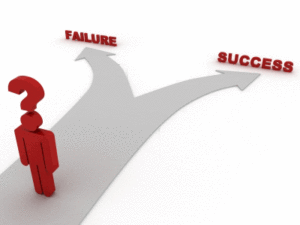So many articles; so many self-proclaimed entrepreneurship experts (who have never started a successful venture themselves) – yet this never stops them from publishing definitive advice on how to be a great entrepreneur. But every so often, one of these formulaic post nails it.
Top Reasons Why Startups Fail
- Lack of focus – Smart people want to try many new ideas, but a resource-constrained start-up does not have the luxury to try all cool things.
- Too ambitious – Start-ups should be targeted on one user need – just tackle one market, one user segment, with one compelling feature that solves a real user need. After proving a concept with a small group of users, you can then expand to more users. Then, you will be well placed to discover more user needs to expand your product iteratively. This is the “lean start-up” methodology.
- Entrepreneur doesn’t scale – Starting a 3-person company is very different from managing a 100-person company. To scale up requires either an experienced entrepreneur or one who is able to scale up quickly.
- Team trust issues – VCs generally prefer team members who have known each other for a long time. Teams lacking trust will be severely challenged by both failure (how to downsize and what to cut) and success (how to divide responsibilities and financial upside).
- Poor execution – In the “lean start-up” environment, a good start may be copied easily by others. So you must be able to execute dependably and quickly – your product needs to be updated on a weekly if not daily basis. Your leadership is maintained not by brand or by IP, but by your continual ability to execute and lead the pack.
- Technology looking for solution – rather than a solution for a user pain looking for proven technology. A good entrepreneur realizes that what matters is not the cool technology, but the value to users. VCs would prefer the innovation to be in spotting the solution, rather than trying an untested (but new) technology.
